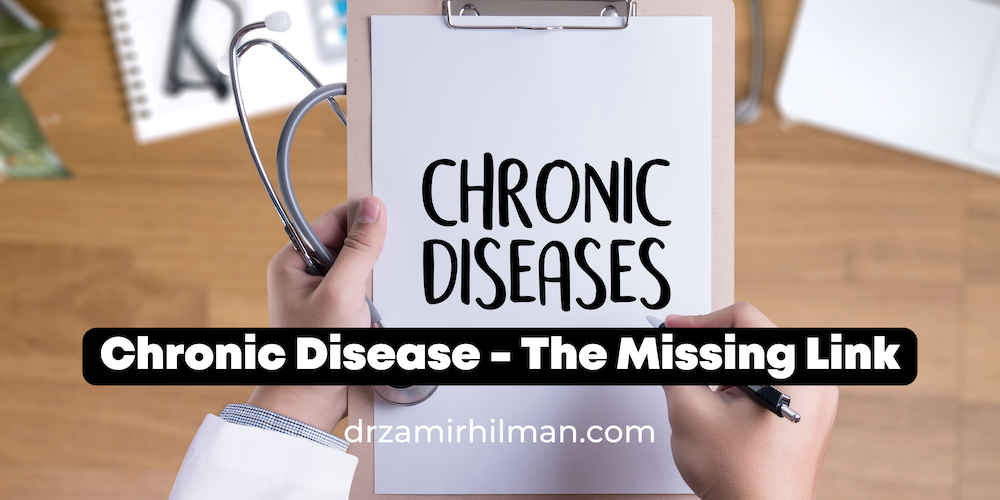
Insulin resistance is a condition in which the body’s cells become resistant to the hormone insulin, which is produced by the pancreas and helps to regulate blood sugar levels. When the body becomes insulin resistant, it can no longer effectively use insulin to move glucose into cells for energy, leading to high blood sugar levels.
Insulin resistance is a key factor in the development of metabolic diseases such as type 2 diabetes, obesity, and cardiovascular disease. When insulin resistance is left untreated, it can lead to a cascade of metabolic abnormalities, including high blood sugar, high blood pressure, high cholesterol, and inflammation, all of which can contribute to the development of chronic diseases.
Insulin itself is the common missing link that a lot of practitioners failed to address. Reversing insulin resistance is the key.
Gut – Metabolic Connection
One missing link in our understanding of insulin resistance is the role that the gut microbiome plays in the development of the condition. Recent research has shown that the gut microbiome, which is the collection of bacteria and other microorganisms that live in the digestive tract, can influence insulin sensitivity and glucose metabolism.
One study published in the journal Cell Metabolism found that certain species of gut bacteria are associated with insulin resistance and metabolic dysfunction, while other species are associated with better metabolic health. The study suggests that altering the composition of the gut microbiome through dietary interventions or probiotics could be a potential strategy for improving insulin sensitivity and preventing metabolic disease.
Stress and Insulin Resistance
Another missing link in our understanding of insulin resistance is the impact of stress on the body. Chronic stress has been shown to contribute to the development of insulin resistance, likely through its effects on hormones such as cortisol and adrenaline. This highlights the importance of stress management strategies as part of a comprehensive approach to reversing insulin resistance and improving metabolic health.
Given the complexity of insulin resistance and its impact on metabolic health, it is crucial to work with a doctor who understands the condition and can provide personalized treatment strategies. A knowledgeable doctor can help to identify the root causes of insulin resistance, such as diet, physical activity levels, and stress, and develop a plan to address these factors through lifestyle changes, medication, or other interventions.
Conclusion
In conclusion, insulin resistance is a complex condition that plays a key role in the development of metabolic diseases such as type 2 diabetes and cardiovascular disease. Understanding the missing links in our knowledge of insulin resistance, such as the role of the gut microbiome and stress, can help to inform new strategies for preventing and reversing the condition. Working with a doctor who understands insulin resistance is crucial for developing an effective treatment plan and improving overall metabolic health.
Let me help you reverse Insulin Resistance!
Functional Blood Chemistry Analysis (FBCA) provides deeper insights into your health by focusing on optimal wellness ranges tailored to you. Unlike traditional bloodwork, FBCA identifies imbalances and risks early, offering a proactive approach to preventing chronic conditions. Our clear, detailed reports reveal hidden dysfunction patterns and trends, enabling personalized supplementation plans for optimal health.
Take control of your health and discover what your blood can tell you!
Click Here To Get FBCA Blood Check! (You will be directed to my Instagram messenger, and i will send the details there)